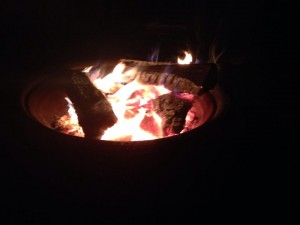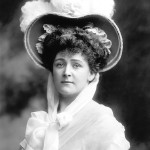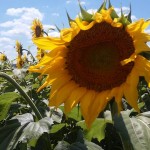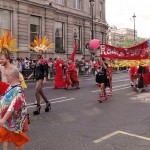Acquainted with the Night
I have been one acquainted with the night.
I have walked out in rain—and back in rain.
I have outwalked the furthest city light.
I have looked down the saddest city lane.
I have passed by the watchman on his beat
And dropped my eyes, unwilling to explain.
I have stood still and stopped the sound of feet
When far away an interrupted cry
Came over houses from another street,
But not to call me back or say good-bye;
And further still at an unearthly height,
One luminary clock against the sky
Proclaimed the time was neither wrong nor right.
I have been one acquainted with the night.
–Robert Frost
…
Lately, thanks in part to my colleague Yvonne’s excellent writing around embodied spirituality, I’ve been thinking a lot about embodiment, endarkenment, and creativity, and how intertwined all these concepts are. I’ve even (finally) invented a phrase for how I ground my own work in the world: creative endarkenment. After all, creativity roots itself in the dark, no matter how small or large the idea…but before anyone can explore that truth, we have to get comfortable with the idea of darkness.
I belong squarely in Generation X, which means when I was in college many of us gathered and marched and
shouted and sang songs by the Indigo Girls in order to Take Back the Night. We petitioned and argued to install emergency phones and more lighting around the darkest spaces on campus. Back then, we thought if we lit up the shadows, rape culture would suffer a serious blow. And I remember wondering at the time if I was strange, in that darkness felt so much safer to me than being pinned and spotlit by the newly installed lights. Their glare made me so obviously single and alone as I walked back to my room through the Minnesota dark.
Maybe we were safer from some kinds of violence, I don’t know. But I do know we blamed the wrong thing. Darkness was never the root cause. Social media has proved convincingly that rape culture is all too happy to go public with acts of abusive power and violence.
And yet it isn’t any surprise we feared and blamed the dark. We grow up in a culture that assigns so many negative qualities to “darkness”—labels so many bad things “dark” and blames “darkness” for them: ignorance, fear, anger, violence, to name only the first few that spring to mind. And this has inevitable repercussions in a society that labels and separates people as “white” “black” and “brown.”
Now we wheel past the spring equinox into the season of light. We rake off our garden beds, poke seeds, pile on mulch and remember darkness can be kind, can be nurturing, and is certainly crucial. As Molly Meade (Remer) writes, “In darkness, things germinate and grow. The dark is a calm, holding, safe, welcoming place—we come from darkness and that is where we return.”
Light pushes always out against the dark…and yet any light source is eternally nestled within that deep embrace, no matter how bright it shines. We can feel this truth as threatening, if we are scared of the dark, of what lives in the shadows.
On the other hand, wi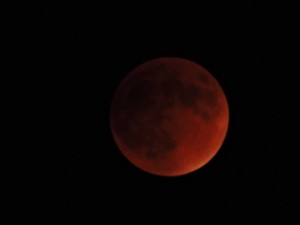 thout darkness, we are left with the glare of brutal interrogation and too rigid certainty. There remains no mystery to seek. It is impossible to imagine a fluid dreaming without darkness. And what would we be without dreams? What would it mean if our shapes could never shift?
thout darkness, we are left with the glare of brutal interrogation and too rigid certainty. There remains no mystery to seek. It is impossible to imagine a fluid dreaming without darkness. And what would we be without dreams? What would it mean if our shapes could never shift?
Of course, dreams are not only happy cuddly things. The phrase “the dark night of the soul” resonates in the bone because it feels true. Frost’s poem “Acquainted with the Night” knows that just as there is room for light within the embrace of darkness, there is room for much else too. Our deep depressions, our sorrows, our angers, can take us to places that are psychically quite dark. As Carl Jung knew (and as our therapists tell us on a regular basis and we pay them for it), it is at times necessary to rest in the presence of such discomfort. To stop pushing the dark away long enough to listen to what lives there.
Fortunately, there are people to help us on the path. I had the pleasure and good fortune to interview Danica Swanson recently for a class assignment. You can find the entire interview posted at her blog, but today these words are in my mind:
Sacred endarkenment, to me, is a concept and a way of being that provides a necessary counterbalance to our culture’s over-emphasis on enlightenment, transcendence, “rising above,” and so on. … Despite popular belief, darkness doesn’t necessarily mean evil or negativity – in fact, dark places can be sources of great richness, alchemy, and incubation…
I was raised in a New Age family, and had experienced first-hand the failures of empathy and errors in perception that could result from a heavy emphasis on “positive thinking” and other forms of saccharine sweetness in spiritual work. In a way, you could say my New Age upbringing primed me for a darker, more chthonic path. Dogma can be just as oppressive when it’s presented as “love and light” as it can be when it shows up in less culturally sanctioned ways.
Swanson gets it right: too much positivity results in “failures of empathy” and “errors in perception” and that my friends gets us into a mess. Welcoming the dark with all its unknowns and locating the tender spots is necessary for any fruitful germination, including our own. In our fearful, angry moment of history I can’t help thinking that it’s as good a time as any for us to face our own personal and cultural shadows, to begin to sit with our histories of violence, oppression, guilt, fear, resentment. To learn stillness.
That’s a big ask. And more than I can take on this morning. A good place to start might be just getting a little more comfortable sitting together, here in the dark. Over the next few days and weeks, I want to explore the idea of endarkenment, to think about how and why we might want to wander out once in a while past the fire’s light and peer into the shadows. I hope you’ll join me.
